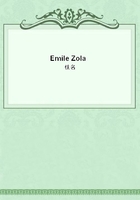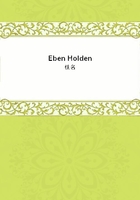Meantime it was clear to Henry that popular feeling was strong against his policy, but instead of being deterred by this, he became more obstinate and determined to show the people that his wishes must be obeyed. A nun named Elizabeth Barton, generally known as the "Nun of Kent," claimed to have been favoured with special visions from on high. She denounced the king's marriage with Anne, and bewailed the spread of heresy in the kingdom. People flocked from all parts to interview her, and even Cranmer pretended to be impressed by her statements. She and many of her principal supporters were arrested and condemned to death (Nov. 1534). It was hoped that by her confession it might be possible to placate Bishop Fisher, who was specially hated by Henry on account of the stand he had made on the question of the marriage, and the late Lord Chancellor, Sir Thomas More. Both had met the nun, but had been careful to avoid everything that could be construed even remotely as treason. In the Act of Attainder introduced into Parliament against Elizabeth Barton and her confederates, the names of Fisher and More were included, but so strong was the feeling in More's favour that his name was erased. Fisher, although able to clear himself from all reasonable grounds of suspicion, was found guilty of misprision of treason and condemned to pay a fine of ā300.
Fisher and More were then called upon to take the oath of succession, which, as drawn up, included, together with an acknowledgement of the legitimacy of the children born of Henry and Anne, a repudiation of the primacy of the Pope, and of the validity of Henry's marriage with Catharine. Both were willing to accept the succession as fixed by Act of Parliament, but neither of them could accept the other propositions. They were arrested therefore and lodged in the Tower (April 1534).
Commissions were appointed to minister the oath to the clergy and laity, most of whom accepted it, some through fear of the consequences of refusal and others in the hope of receiving a share of the monastic lands, which, it was rumoured, would soon be at the disposal of the king. A royal commission consisting of George Brown, Prior of the Augustinian Hermits, and Dr. Hilsey, Provincial of the Dominicans, was appointed to visit the religious houses and to obtain the submission of the members (April 1534). By threats of dissolution and confiscation they secured the submission of most of the monastic establishments with the exception of the Observants of Richmond and Greenwich and the Carthusians of the Charterhouse, London. Many of the members of these communities were arrested and lodged in the Tower, and the decree went forth that the seven houses belonging to the Observants, who had offered a strenuous opposition to the divorce, should be suppressed.[28] The Convocations of Canterbury and York submitted, as did also the Universities of Oxford and Cambridge.
When Parliament met again in November 1534 a bill was introduced proclaiming the king supreme head of the Church in England. The measure was based upon the recognition of royal supremacy extracted from Convocation three years before, but with the omission of the saving clause "as far as the law of Christ allows." According to this Act it was declared that the king "justly and rightly is and ought to be the supreme head of the Church in England, and to enjoy all the honours, dignities, pre-eminences, jurisdictions, privileges, authorities, immunities, profits and commodities" appertaining to the dignity of the supreme head of the Church.[29] An Act of Attainder was passed against Fisher, More, and all others who had refused submission. The First Fruits, formerly paid to the Pope, were to be paid to the king, and bishops were allowed to appoint men approved by the crown to be their assistants.
By these measures the constitution of the Church, as it had been accepted for centuries by the English clergy and laity, was overturned. The authority of the Pope was rejected in favour of the authority of the king, who was to be regarded in the future as the source of all ecclesiastical jurisdiction. This great religious revolution was carried out without the consent of the bishops and clergy. With the single exception of Cranmer the bishops to a man opposed the change, and if they and the great body of the clergy made their submission in the end, they did so not because they were convinced by the royal arguments, but because they feared the royal displeasure. Neither was the change favoured by any considerable section of the nobles and people. The former were won over partly by fear, partly by hope of securing a share in the plunder of the Church;the latter, dismayed by the cowardly attitude shown by their spiritual and lay leaders, saw no hope of successful resistance. Had there been any strong feeling in England against the Holy See, some of the bishops and clergy would have spoken out clearly against the Pope, at a time when such a step would have merited the approval of the king.
The fact that the measure could have been passed in such circumstances is in itself the best example of what is meant by Tudor despotism, in the days when an English Parliament was only a machine for registering the wishes of the king.
In January 1535 an order was made that the king should be styled supreme head of the Church of England. Thomas Cromwell, who had risen rapidly at court in spite of the disgrace of his patron, Cardinal Wolsey, was entrusted with the work of forcing the clergy and laity to renounce the authority of the Pope. The bishops were commanded to surrender the Bulls of appointment they had received from Rome, and to acknowledge expressly that they recognised the royal supremacy.















